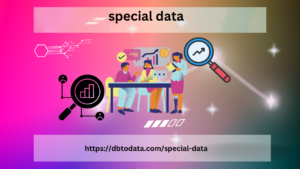In a world where communication is key, language plays a crucial role in shaping our identities. Our choice of words, accents, and dialects can reveal a lot about who we are, where we come from, and what we believe in. a reflection of our cultural heritage and personal identity. In this article, we will delve into the intricate relationship between language and identity, exploring how they intertwine and influence each other.
The Power of Language in Shaping Identity
Language is not just a tool for communication; it is a fundamental aspect of our identity. The words we use and the way we speak can reveal a lot about mint database our background, upbringing, and beliefs. Our language choices can also shape how others perceive us and can influence the way we see ourselves. For example, someone who speaks multiple languages fluently may feel a strong connection to their multicultural heritage, while a person who speaks a regional dialect may feel a sense of pride in their local roots.
Cultural Significance of Language
Language is deeply intertwined with culture, and the way we speak is often a reflection of our cultural identity. The words we use, the idioms we employ, and the jokes we tell are all influenced by the cultural context in which we live. For example, different cultures may have unique ways of expressing emotions, sharing information, or showing respect through language. By learning about different languages and dialects, we can gain a deeper understanding of the diverse cultures that make up our world.
Identity Crisis: Language Loss and Assimilation
In today’s globalize world, many people are fac with the challenge of maintaining their linguistic and cultural identity in the face of assimilation. As people migrate to new countries or regions, they may be pressur to adopt the dominant language and culture, leading to a loss of their native language and identity. This phenomenon, known as language loss, can have profound effects on an individual’s sense of self and belonging. It is important for society to recognize and support linguistic diversity to prevent the erasure of unique cultural identities.
Language as a Tool of Empowerment
Language can also be a powerful tool for empowerment, allowing individuals to reclaim their cultural heritage and assert their identity. By preserving and promoting minority languages, communities can maintain a sense of connection to their roots and resist assimilation. Language revitalization efforts, such as language immersion programs and. Cultural festivals, can help to ensure that future generations have the opportunity to learn and speak their ancestral languages. By valuing and celebrating linguistic diversity. We can create a more inclusive and equitable society for all.
Embracing Linguistic Diversity
In conclusion, language and identity are deeply interconnected. With our choice of words and the way we speak playing a significant role in shaping who we are. By recognizing the cultural significance of language, supporting linguistic. Diversity, and empower quick signs ing individuals to embrace their unique identities, we can create a more. Inclusive and understanding society. Language is not just a means of communication; it is a reflection. of our heritage, beliefs, and values. Let us celebrate the richness of linguistic diversity and embrace the unique identities that make our world so vibrant.
How can we pres#rve our cultural identity through language?
Preserving our cultural identity through language can be achiev through various means such as promoting bilingual education, supporting minority language initiatives, and encouraging intergenerational language transmission. By valuing and preserving on page and off page seo: what they are and what their main characteristics are our linguistic heritage, we can ensure that future generations have the opportunity to connect with their roots and maintain a strong sense of cultural identity.
Meta-description: Explore the intricate relationship between language and identity, and discover how our choice of words shapes who we are. Embrace linguistic diversity and celebrate the richness of cultural heritage.

